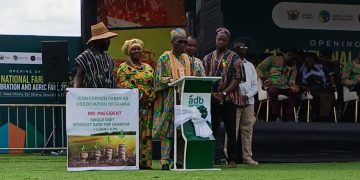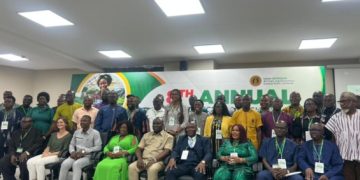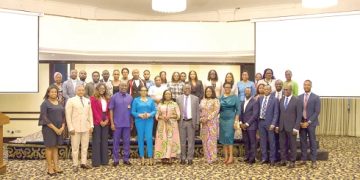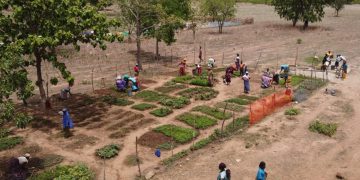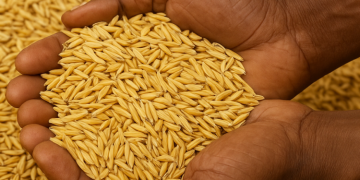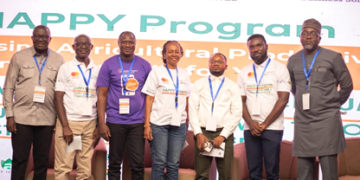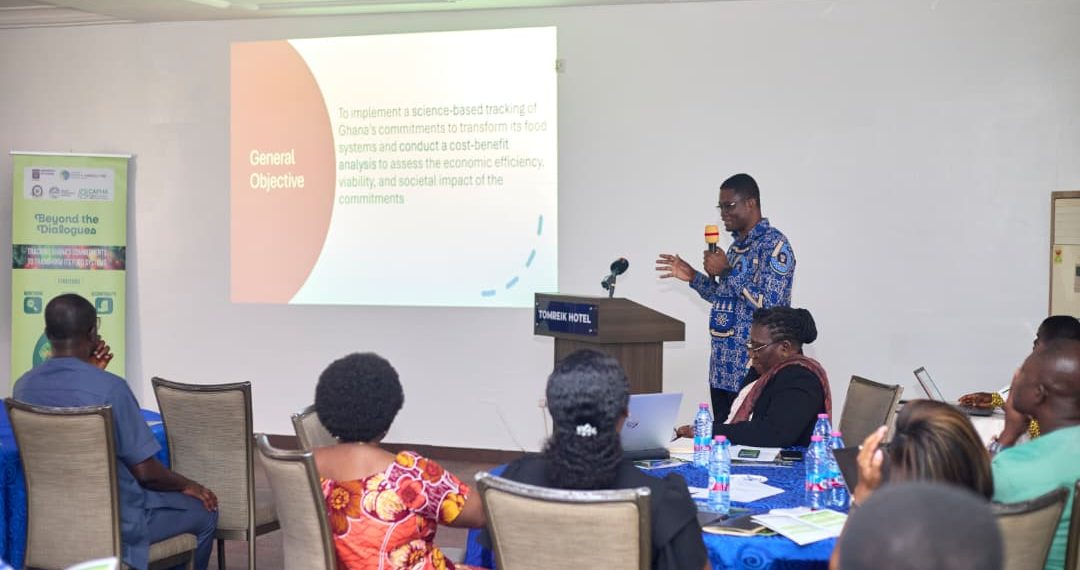Stakeholders in Ghana’s food and agriculture sector have reaffirmed their commitment to building a healthier, more resilient food system at a one-day sensitization workshop held in Accra under the theme “Tracking Ghana’s Commitment to Transform Its Food Systems.”
The event formed part of the “Beyond the Dialogue Project,” a three-year initiative funded by the Government of Canada and led by the University of Ghana in collaboration with the Ministry of Food and Agriculture, the National Development Planning Commission (NDPC), the Ghana Statistical Service, and the Coalition of Actors for Public Health Advocacy (CAPHA).
The project aims to track Ghana’s national commitments made during the 2021 United Nations Food Systems Summit (UNFSS) and to evaluate their economic, social, and health impacts through evidence-based research. It also seeks to strengthen coordination among stakeholders and empower the media to play an active role in public education and advocacy on food systems.
Speaking at the workshop, Professor Anna Lartey, Co-Principal Investigator of the project, urged Ghanaians to take personal responsibility for their health by adopting balanced diets.
“A healthy meal should include a variety of fruits and vegetables. As a general rule, about half of what we eat at a sitting should be vegetables,” she advised.
Prof. Lartey explained that during the 2021 UN Food Systems Summit, more than 160 UN member states, including Ghana, pledged to reform their food systems in response to global concerns such as malnutrition, food insecurity, and climate change.
She said Ghana developed 17 national commitments across five focus areas to guide the country’s food systems transformation, adding that the Beyond the Dialogue Project is developing measurable indicators to track and assess progress.
Among Ghana’s commitments, she highlighted two key pledges:
-
The development of food-based dietary guidelines to promote healthy eating habits; and
-
Extending maternity leave to 14 weeks across all sectors to support breastfeeding and child nutrition.
Dr. Kasim Abdulai, Director of Operations at CAPHA, emphasized that the project goes beyond documentation — it is about ensuring real action and transparency.
“We are here to champion accountability by ensuring that Ghana’s 17 commitments are not just promises on paper but are acted upon,” he said.
“If government’s role is to commit and academia’s role is to measure, then civil society must be the conscience of the process — pushing commitments from policy to practice and from words to measurable impact.”
Delivering remarks on behalf of the National Development Planning Commission (NDPC), Mr. Nii Odoi Odotei, Principal Planning Analyst, said food systems transformation goes beyond agriculture and covers the entire value chain — from production and processing to distribution, marketing, and consumption.
He noted that the NDPC has consistently integrated food systems into the country’s medium-term development plans and is committed to keeping them at the core of Ghana’s national development agenda.
“Our goal is to ensure that integrated food systems continue to drive national growth and deliver benefits to all communities across the country,” he stated.
Professor Amos Laar, Principal Investigator and Head of the Department of Public Health at the University of Ghana, explained that following the UN Food Systems Summit, countries were expected to develop transformation pathways and track progress toward their goals.
He said Ghana’s commitments cover the period 2021 to 2030, with some targeted for completion by 2025.
“For some commitments, there is already clear evidence of progress, while for others, data collection and analysis are ongoing,” he noted.
Prof. Laar commended the Government of Ghana for taking bold steps toward transforming the country’s food systems and reaffirmed that all indicators being used for tracking are aligned with the Sustainable Development Goals (SDGs).
“Food systems are at the heart of national survival and sustainable development,” he emphasized.
The workshop concluded with a renewed call for collaboration among government, academia, civil society, and the media to ensure that Ghana’s food systems commitments translate into tangible results.
Stakeholders agreed that building a healthier, more resilient food system requires continuous accountability, inclusive participation, and evidence-driven policy implementation that benefits every Ghanaian.

















